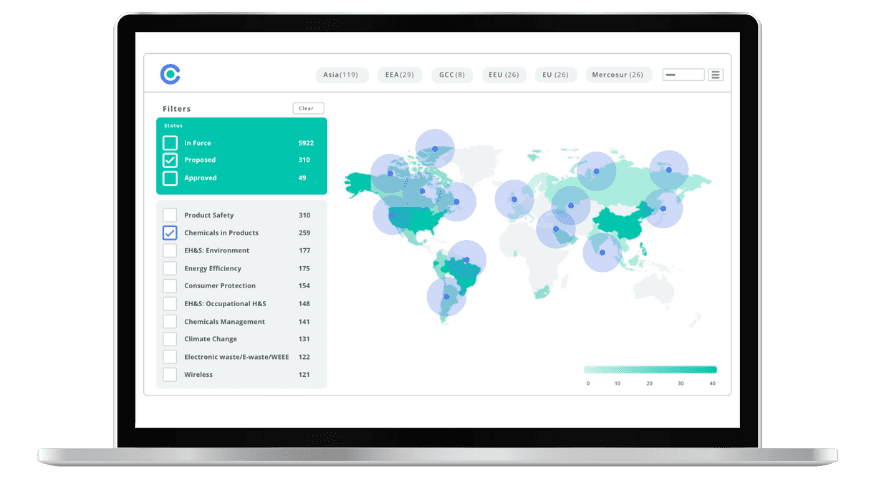
EU Hits Pause: Sustainability Reporting and Due Diligence Obligations Will Be Delayed

This blog was originally posted on 4th April, 2025. Further regulatory developments may have occurred after publication. To keep up-to-date with the latest compliance news, sign up to our newsletter.
AUTHORED BY HANNAH JANKNECHT, REGULATORY COMPLIANCE SPECIALIST, COMPLIANCE & RISKS
On 3 April 2025, the European Parliament voted to adopt the so-called ‘Stop-the-Clock’ proposal, which will delay the Corporate Sustainability Reporting Directive (CSRD) and Corporate Sustainability Due Diligence Directive (CSDDD) obligations for certain companies. The Council already endorsed the same text on 26 March 2025. The text now needs to be formally approved by the Council before it enters into force.
Why is This Happening?
The delay of the sustainability obligations comes as part of the Omnibus Package, which was proposed by the EU Commission on 26 February 2025. The proposal aims to simplify and reduce certain corporate sustainability obligations in the EU.
The package contains two separate proposals to amend the CSRD and CSDDD – the ‘stop-the-clock’ proposal and the ‘content’ proposal. For more details on these two proposals, please see our update from 4 March 2025.
Which Sustainability Reporting Obligations are Being Postponed?
Corporate Sustainability Reporting Directive (CSRD)
The ‘stop-the-clock’ proposal pushes out reporting obligations under the CSRD by two years for those companies that have not yet started to report, but that are required to report as of 2026 or 2027 (wave 2 and wave 3 companies).This concerns large non-public companies with more than 500 employees, large public companies with less than 500 employees and listed SMEs.
The delay seeks to avoid unnecessary expenses for these companies, as the ‘content’ proposal intends to remove companies with less than 1000 employees from CSRD reporting requirements altogether.
Corporate Sustainability Due Diligence Directive (CSDDD)
The EU is also delaying the application of the CSDDD due diligence obligations for the first wave of companies by one year. This concerns EU-based companies with more 5,000 employees and a net turnover of more than 1.5 billion euro, and non-EU companies with a net turnover of more than 1.5 billion euro in the EU. These companies will now be required to comply with the CSDDD from 2028.
In addition, member states will have until 26 July 2027, a year later than originally planned, to transpose the CSDDD into their national laws.
Are There Any Changes to the Content of the CSRD Reports and Due Diligence Obligations?
While the ‘stop-the-clock’ amendment only addresses the timeline of the reporting and due diligence obligations, the Omnibus Package as a whole proposes far-reaching changes to their content. Compliance & Risks has provided a comparison of the current text and the proposed amendments.
The adoption of the ‘content’ proposal will take more time than the fast-tracked changes to the reporting timelines, and the Council has urged its co-legislators to finalize the changes as soon as possible in 2025.
A key part of the Omnibus Package is to decrease the amount of data that companies need to provide as part of their sustainability report. This data is guided by the European Sustainability Reporting Standards (ESRS), and the Commission envisages to reduce the number of data points and add necessary clarifications. To this end, the Commission has asked the European Financial Advisory Committee (EFRAG) to prepare simplified versions before 31 October 2025.
How Can Companies Prepare?
Reactions to the Omnibus Package are mixed, and many companies that have already started to prepare and allocate resources to the new mandatory obligations are worried by the uncertainty that has been created by the changing timelines.
The uncertainty affects in particular companies subject to wave 2 and 3 of the CSRD, since these companies will no longer be in scope of the CSRD if the ‘content’ proposal is adopted without any changes. However, taking into account the division among EU political groups regarding the Omnibus package, and the fact that the ‘content’ proposal will go through the EU’s ordinary legislative procedure, it is expected that certain changes will be made to the initial ‘content’ proposal. Wave 2 and 3 companies are advised to follow the developments closely and avoid changing their processes too soon. Compliance & Risks will monitor updates and report on any progress.
Stay Ahead Of Regulatory Change in ESG Disclosure Rules
Want to stay ahead of ESG regulatory developments?
Accelerate your ability to achieve, maintain & expand market access for all products in global markets with C2P – your key to unlocking market access, trusted by more than 300 of the world’s leading brands.
C2P is an enterprise SaaS platform providing everything you need in one place to achieve your business objectives by proving compliance in over 195 countries.
C2P is purpose-built to be tailored to your specific needs with comprehensive capabilities that enable enterprise-wide management of regulations, standards, requirements and evidence.
Add-on packages help accelerate market access through use-case-specific solutions, global regulatory content, a global team of subject matter experts and professional services.
- Accelerate time-to-market for products
- Reduce non-compliance risks that impact your ability to meet business goals and cause reputational damage
- Enable business continuity by digitizing your compliance process and building corporate memory
- Improve efficiency and enable your team to focus on business critical initiatives rather than manual tasks
- Save time with access to Compliance & Risks’ extensive Knowledge Partner network

ESG 2024: A Year in Review
A comprehensive review of the 2024 ESG landscape, taking as many learnings and insights to gauge 2025 regulatory changes and beyond!


